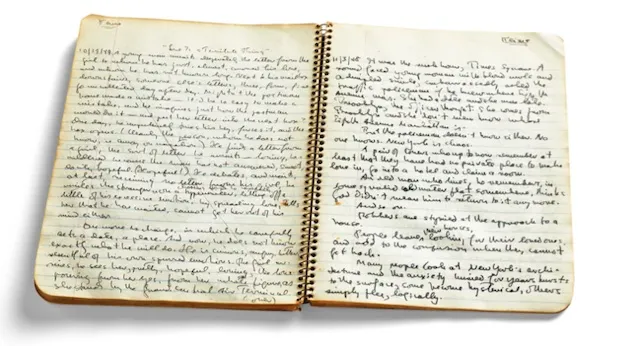If all the digital power that it takes to type up a book could be gathered into one blow, it would probably knock a hole through the Empire State Building
quote attributed to Patricia Highsmith by u/Suspicious-Sound7338 at https://reddit.com/r/typewriters/comments/1ly0fei/guess_the_quote/
It is Patricia Highsmith, she said it in her diaries/notebooks cahiers, she had been keeping them all her life since 17 years olds://myoldtypewriter.com/2025/06/16/good-enough-is-very-fine-royal-kmg-tabulator-issue/
